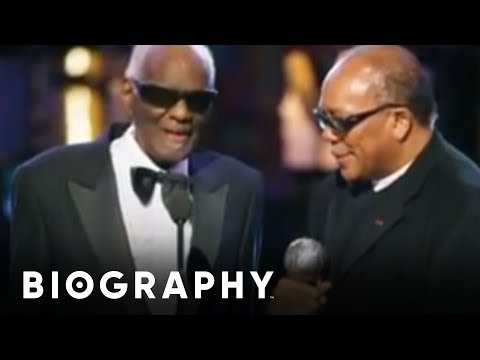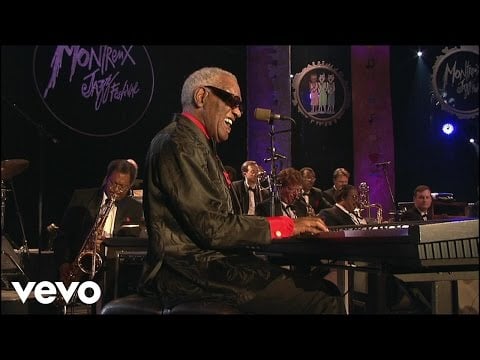Do you know this man?
He was born in 1930 in the south-east of the USA. He was black, which was a much bigger obstacle back then than it is today. He grew up in the poorest neighborhood of his hometown.
He never met his father. His mother died when she was 31 years old.
He went blind at the age of seven. Nine months earlier, he had witnessed his younger brother drowning.
Racism was something he encountered every day. One afternoon, he had decided to go out for a swim off Myrtle Beach, South Carolina. He suddenly heard his friends, back on the beach, screaming for him to come back to shore—because he was blind, he couldn’t see that he had been about to cross the line between the black and white “sides” of the ocean.
You know his name: Ray Charles.
The iconic musician revolutionized the landscape of music with his innovative style. His pioneering blend of rhythm and blues, gospel and jazz captivated audiences worldwide, establishing him as a musical legend. Through his soulful voice and masterful piano skills, Charles left an indelible mark on the industry, shaping the course of music history.

He was incredibly rich and famous – what many people dream of. Rolling Stone magazine ranked him second in its list of the 100 best singers of all time after Aretha Franklin but ahead of Elvis Presley.
What impressed me most about Ray Charles was his philosophy on life. In his autobiography, he writes how important it was for him as a young man to “understand how things worked: If I got into trouble, that was my doing.
Or if I did something halfway worthwhile, I could take the credit. Responsibility came awfully early to me.”

For much of his life, he was a heroin addict. He could have blamed others and seen himself as a victim. Instead, he said: “No one did it to me. I did it to myself. It wasn’t society that did it to me, it wasn’t a pusher, it wasn’t being blind or black or being poor. It was all my doing.”
Even when someone cheated him out of a lot of money, he didn’t get furious or bitter, as he explains, it “taught me to keep my nose closer to the books.” And when he was found guilty of possessing illegal drugs, he admits: “I stood accused. And I couldn’t plead anything but guilty … I saw the bust as my own doing.”
From psychological studies, we know that unsuccessful people see themselves as victims of external circumstances and believe that their lives are determined by factors beyond their control. Successful people, on the other hand, tend to focus more on the things they can influence and change.
They see themselves as creators of their own destiny.
The first attitude (“external locus of control”) is a victim mentality and leads to passivity and discouragement; the second attitude (“internal locus of control”) leads to activity and motivates people to make an effort on their own.
You decide: Which of the two attitudes do you think will give you the best chances of making it in life?
According to the “woke” ideology, a person’s identity is largely based on one’s status as a victim: of racism, sexism, abelism, etc. But does encouraging people to see themselves primarily as victims actually help anyone at all?
Doesn’t it just make them feel helpless and remove their sense of agency? Their message is: “Your life situation is the way it is for structural reasons, so you have no chance to change it until the structures are torn down.”
Such messages make people helpless.
What we can learn from Charles is to stop making excuses. It’s not society’s fault if you’re not successful. Not capitalism, racism, sexism, etc. Given Charles’ unparalleled success despite hardships, where do your excuses for not trying hard enough hold ground?
Rainer Zitelmann is the author of the book “Unbreakable Spirit. Rising Above All Odds”
The post This Superstar Rejected Victimhood Status appeared first on Hollywood in Toto.
0 Comments